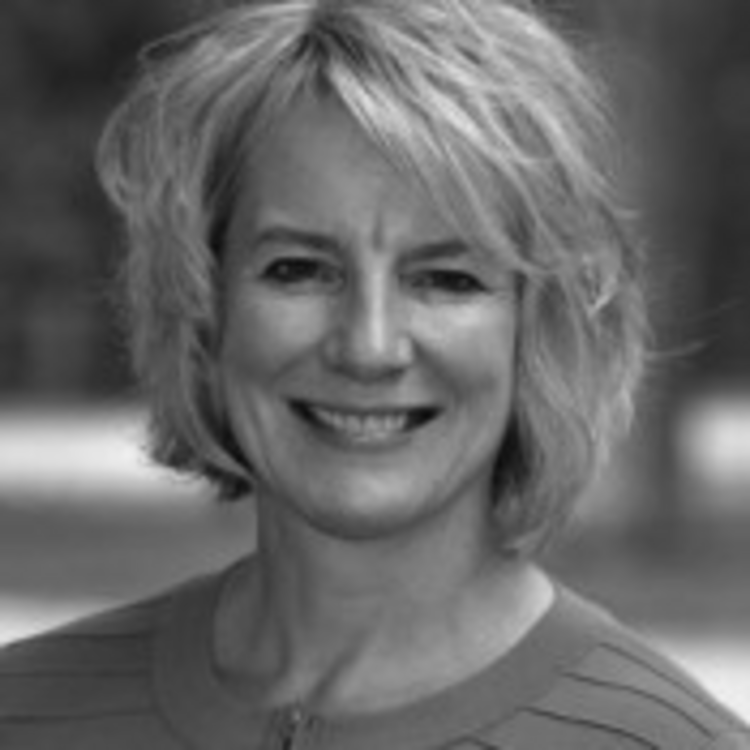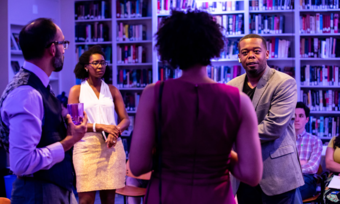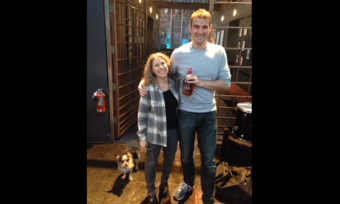Writing In the Middle of Nowhere
Ask playwrights how they approach the daily task of writing, and typically, the answer is practical, workman-like, involving a serious set of hours and diligent habits. But ask those same playwrights what it’s like to show that work to an audience for the first time, and chances are, you’ll see a chemical reaction happen before your eyes, complete with effusions of It-makes-me-crazy-I hate-all-the-mistakes-in-my-first-draft-I-want-to-sink-into-the-ground. Get some commission money involved, and a theater making programming decisions, and the stakes are higher. Under pressure, the distinctive, urgent play may be set aside, the safer, more commercial choice taken.
In her 2009 Andrew W. Mellon Foundation paper “New Play Development in US Theatres,” which reported on five years of recent research involving many of America’s leading proponents of new plays, Diane Ragsdale placed this anxiety in a larger context. “Because so much rides on the success or failure of each new play, many excellent plays die with their premieres, and many works are not given the opportunity to evolve and improve. Fear of alienating subscribers, critics, and donors lead many to produce ‘do no harm’ seasons, which lack artistic or regional distinction. And, at some theaters, commissions, readings, workshops, and new play development programs have become a way to reduce the risks associated with producing new works; these close the gates while appearing to hold them open.”
This is the dilemma that was front-of-mind for us when we set out two years ago to create the Kenyon Playwrights Conference. There seems to be a vulnerable moment, early in the commissioning process, when the play is still in first-draft putty form, when the playwright is making choices. Artistic director and playwright Wendy MacLeod and I wondered aloud: what would happen if, right then, that playwright was placed in a remote community of writers for two weeks, at Ohio’s quiet and serenely beautiful Kenyon College? And what if that playwright could work with the commissioning theater’s literary manager as an advising voice and with all the tools at hand—actors to read, writers to hear, and, at the end, a fully staged reading? And no ticket sales. No critics.
Commissioning theaters, we reasoned, also have a great deal at stake in this process. Commission money isn’t easy to find, and it often comes with hooks large and small. What if we removed the hooks? What if we offered a no strings, decently-sized commission, plus a residency, and the invitation to join with—let’s see—two other companies—just to foster creative exchange? We tried this idea out on three leading companies, who at first looked at us as if we were slightly crazy. Then Steppenwolf, the Atlantic Theater Company, and London’s Hampstead Theatre all said, “Yes.”
Then what if it didn’t stop there? We’re college-based, so we know that rising playwrights—those just out of college or graduate school, or working with smaller companies, or writing on their own—often write plays in something of a professional vacuum. They don’t necessarily hear one another’s work, and they often lack the opportunity to hear what an experienced producer might think of their play.
So what if we created a workshop? Taught by the literary managers, while they were here with their playwrights, along with experienced Kenyon faculty? We created this small seminar-based workshop, and they came—adult playwrights from all over the country, who wrote their way into the forty-five spots available in the one-week session. Their tuitions made it possible for us to extend the commissions and kept us “drug-free”—free of the need for ticket sales or the sedative drag of heavy fundraising.
It’s my view that the “free” approach to this project—sustaining an altruistic stance in our commissions, our partnerships, and our financial model—is liberating to all writers involved. One of the commissioned playwrights took me aside last summer, looked at me fixedly and said, “You are being awfully generous,” which I read as a nice word for “naïve.” Then she went on to tell me that generosity changed her writing. “I’ve made my living writing on the gritty side,” she admitted. “In the play I am writing here, I am experimenting with more colors, more joy. It’s a risk.”
Christian Parker, associate artistic director of the Atlantic Theatre Company, said of his work at the Kenyon Institute with playwright Craig Lucas: “We hoped that Craig would have a working draft of the play which he and I could discuss, even in its earliest form, and which would benefit from being read aloud in front of an audience. That's exactly what we got. It has been of tremendous value to be out of New York, in a low key, low pressure environment, to discuss and imagine what this play might be.”
Our “win” is not future earnings, participation in productions, or growing a paid audience for the readings. We want to build a community where top-level writers can take off their commercial armor and devote themselves—out of sight of the public, before the pressures of production come to bear—on the quality of what they create. This no-distractions focus on that present writing moment, the quality of the company, and the knowledge that someday—not now—these scripts will most certainly be onstage give the experience rigor and urgency. In such an environment, people and theaters take chances, and they often contribute more to the enterprise than anticipated.
It is hugely valuable to have international partners from the UK, where arts support makes experimentation de rigueur and places new plays at the center of the national theatrical enterprise. We’re on our way for June 2014 with three new partners—London’s Bush Theatre, Baltimore’s Center Stage, and the Manhattan Theatre Club. As we build a community in June in Gambier, Ohio, we hope that that we will be the instigator of conversations between like-minded producers on both sides of the Atlantic.
So what about that terrifying moment, when the scripts open up on the music stands at a first reading and the playwright’s fists clench in the audience? What about that “vulnerable moment?” At Kenyon, we’re hoping that the playwright’s anxiety is infused with the anticipation of trying something new, with venturing into what might be the next, future step in his or her imagination. And that, for us, in the middle of nowhere, is getting somewhere.
(More information about the Kenyon Playwrights Conference can be found at http://www.kenyoninstitute.org/)









Comments
The article is just the start of the conversation—we want to know what you think about this subject, too! HowlRound is a space for knowledge-sharing, and we welcome spirited, thoughtful, and on-topic dialogue. Find our full comments policy here